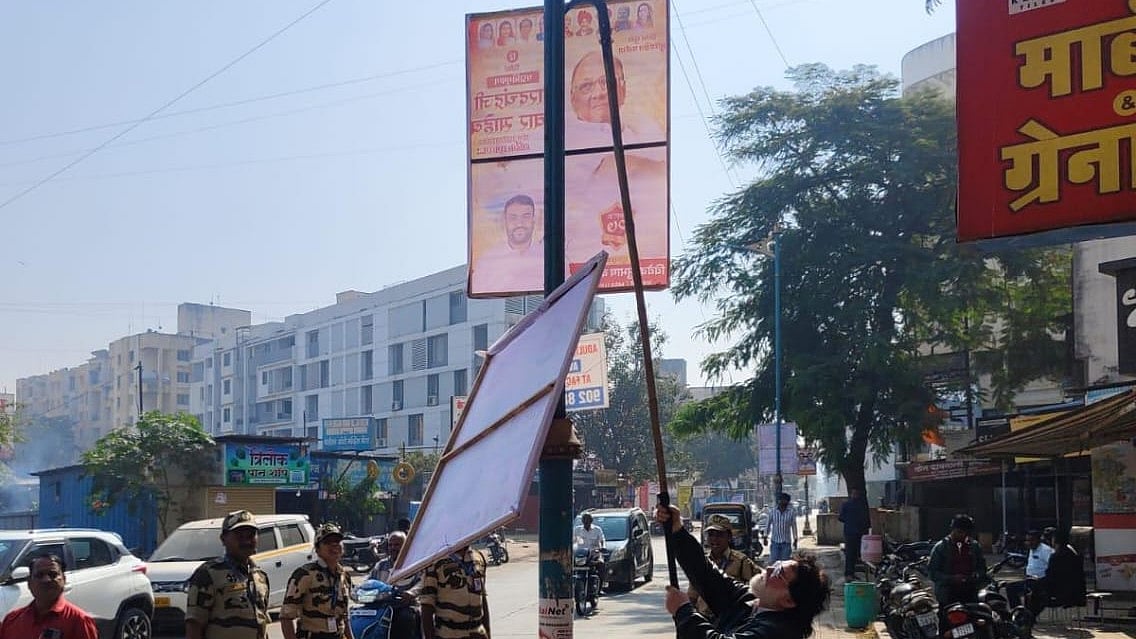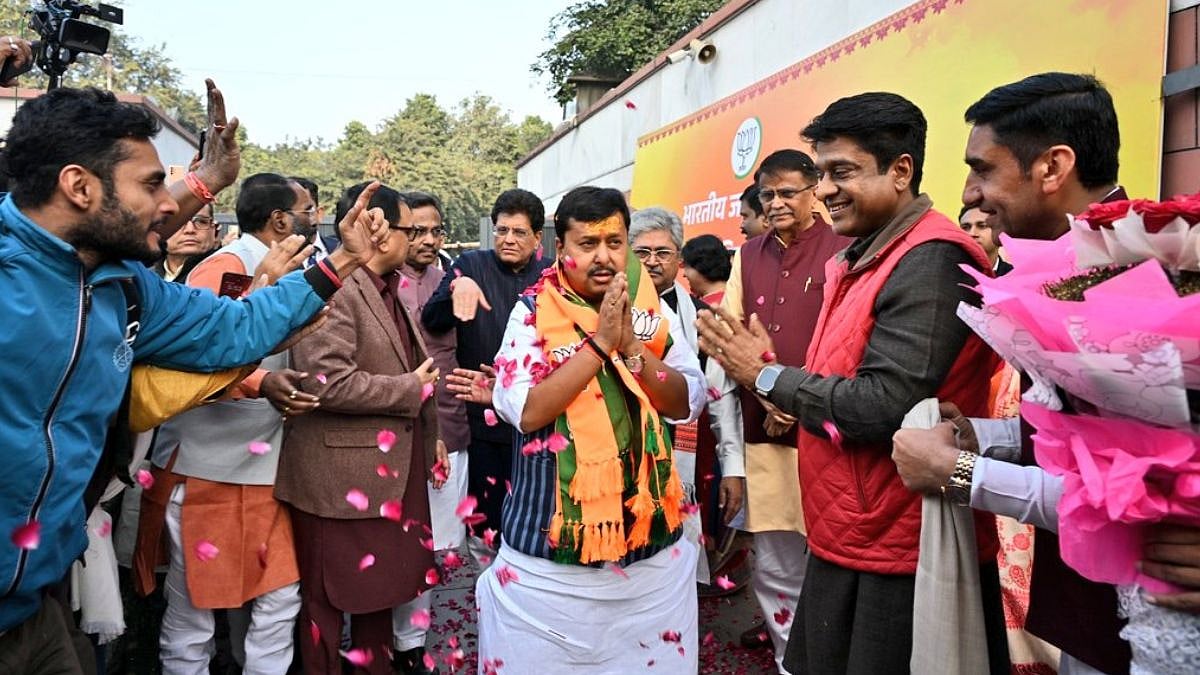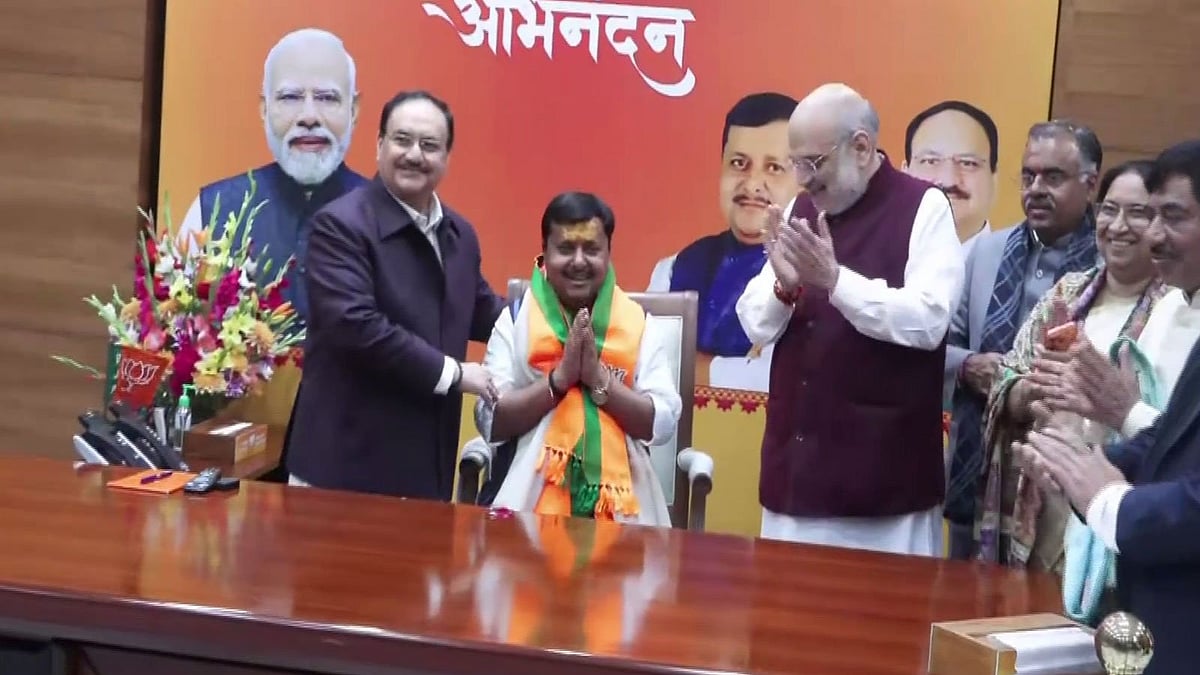Secretary of the Union ministry of AYUSH Vaidya Rajesh Kotecha has landed in a controversy after he said on camera that he would speak only in Hindi and asked participants (precisely from southern states of India) who did not understand the language, to leave a virtual training session.
At the outset, we must get rid of the ethnolinguistic stereotype/s that people from southern states, especially from Tamil Nadu, hate Hindi. They don't. The rest of India, especially the northern mindset, is still labouring under the misconception that people in South have an atavistic hatred for Hindi. The linguistic skirmishes and their ramifications from the Bhasha Vivaad (debate over language) in 1967 are still hidden in the cracks and crevices of the consciousness of Indians, especially of North Indians. That's outright wrong.
Dr Amartya Sen cogently writes in his book, ' The Argumentative Indian,' that 'The fundamental Indian mindset is all-accepting, but it resents imposition of anything and any kind. For that matter, human mind resists and resents any kind of imposition and enforcement.'
An idea, when thrust upon, invariably boomerangs. A language is a part of one's cultural identity. All four Dravidian languages, Tamil, Telugu, Kannada and Malayalam, have a close linguistic kinship. So, a sudden lingual encroachment is often unwelcome.
Gone are the days, when in Madras (sorry, no Chennai for me; this is again cultural imposition), if you'd ask someone in Hindi for directions, he or she would say, 'Please ask either in Tamil or English'. In fact, even in the past, this would happen very rarely. Hindi has never been a pariah in Tamil Nadu or any southern state. Had it been, we'd never have been able to read Dr Rajesh Reddy's fabulous Urdu-Hindi poetry. It was Dr Reddy, who gave the famous tagline to Vividh Bharti: Desh ki surili dhadkan. He worked with AIR and Vividh Bharati.
The late Hanumant Naidu, along with Dushyant Kumar Tyagi, lent a new direction to Hindi ghazals. He was the head of the Hindi department, Nagpur University. Who can forget the legendary Tamilian Rangey Raghav? He's considered to be the father of postmodernism in Hindi literature. It's said of him that when Rangey Raghav would speak in Hindi, Hindi writers and speakers of Hindi belt would rectify their diction! Malini Aiyengar was an Urdu newscaster for All India Radio, Urdu Service! Sharda Iyengar sang Hindi songs for many films.
Hindi actors Jairaj and Chandrashekhar hailed from Hyderabad, but spoke fascinating Hindi and Urdu. Yesudas and S P Balasubramaniam learnt Hindi and sang innumerable Hindi songs. J V Raman was DD's most popular and dignified Hindi newscaster. His enunciation of difficult Hindi words would leave his colleagues spellbound.
My Nagpur-based erudite Tamilian friend, banker, and established writer Dr Rajesh Iyer is much more knowledgeable about old Hindi songs than the so-called Hindi-knowing connoisseurs of film music. He speaks chaste Hindi like a native speaker. Dr Srihari Nair of Kamraj University, Madurai, was the chief paper-setter of Hindi for UPSC exams. Hariharan sings ghazals and Kavita Krishnamurthy sings Hindi songs. Vani Jairam sang beautiful numbers in Hindi. The list is endless.
In this age of pronounced nationalism and also Hinduism, even Hindi is being seen as a 'juxtaposed associate' (John Maxwell Coetzee's phrase) to further a specific (political) agenda. My point is: Northerners talk about the promotion and projection of Hindi, but do they themselves follow it, to set a good precedent? Khushwant Singh once told me at his Hauz Khas bungalow that, 'Highly-placed Sikhs and Punjabis in northern India feel embarrassed to converse in Hindi or Punjabi and would invariably break into English as if it's their mother-tongue.' Very true.
Even Nirad C Chaudhuri wrote in the first edition of his 'Autobiography of an Unknown Indian' that, 'Indian Army officers are more anglicised than Brits themselves. They call Hindi, the language of their sahayak (orderlies). '
A language should be accepted spontaneously and wholeheartedly. And to popularise it ( a language), its spread must never be too forceful. The best example we have is of Scotland. The erstwhile Great Britain never imposed English upon Scottish and Gaelic speakers of Scotland. It allowed the hoary-old dialects to remain untouched and unsullied. There was a time when highlanders of Scotland would converse only in their dialects. But now all Scottish people speak English and they've accepted it sans any resistance and rancour. We must take a lesson from them. Provided, we learn!
We're an impulsive race. We tend to promulgate and practise a thing and implement it overnight. That's not the way. It's unfair. Moreover, a language and religion must be simple for their dissemination. Suddenly, a kind of bookish and B R Chopra's Mahabharat-brand Hindi has come into being. This over-embellished Hindi is not just jarring, this also stymies its natural growth. If this type of affected Hindi is imposed on the people of non-Hindi speaking southern states, how will people out there accept it? They're bound to reject it.
So, stop politicising Hindi and condemning South Indians for hating Hindi. Let all tongues flourish in a free and democratic atmosphere of linguistic co-existence. But, is that possible in such fissiparous times? Attachments area









